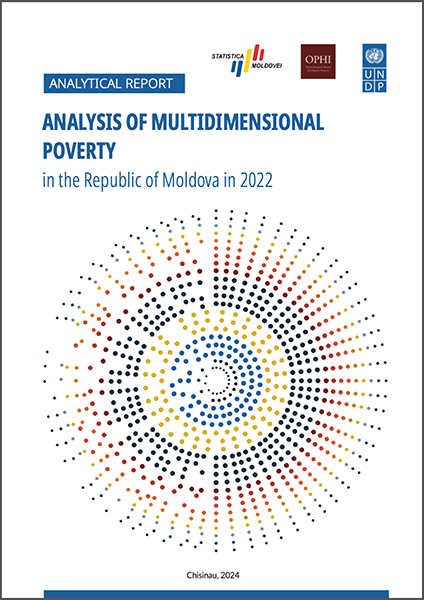Analysis of Multidimensional Poverty in the Republic of Moldova in 2022: Analytical report
This report analysing multidimensional poverty in the Republic of Moldova is published by the National Bureau of Statistics (Statistica Moldovei). OPHI and the United Nations Development Programme (UNDP) provided technical support. Several line ministries including the State Chancellery, the Ministry of Economic Development and Digitalization, the Ministry of Infrastructure and Regional Development, the Ministry of Labour and Social Protection, the Ministry of Health, the Ministry of Education and Research, the Ministry of Energy and other national partners contributed to the development of the methodology, as well as to the study of the possible application of the MPI in public policies.
The national Multidimensional Poverty Index (MPI) uses national Household Budget Survey 2022 data and analyses the way that poverty affects the Moldovan population across 11 indicators grouped within four dimensions: health, education, living standards, and employment. In 2022, 716,000 people (27.5% of the population) were multidimensionally poor, because they experienced deprivations in at least 35 percent of the weighted indicators. The results of the national MPI cover urban, rural and regional disparities; poverty across age groups; poverty among households with children; sex disaggregated disparities of poverty and monetary poverty comparisons.
The national MPI is intended to serve as a valuable resource for policymakers, offering essential insights for designing effective interventions, allocating resources wisely, and securing significant enhancements in Moldovan population’s quality of life.
Citation: NBS and UNDP Moldova (2024). Analysis of multidimensional poverty in the Republic of Moldova in 2022: Analytical report, National Bureau of Statistics and UNDP Moldova, developed by Aurelia Spătaru [et al.], Chisinau, Moldova.



